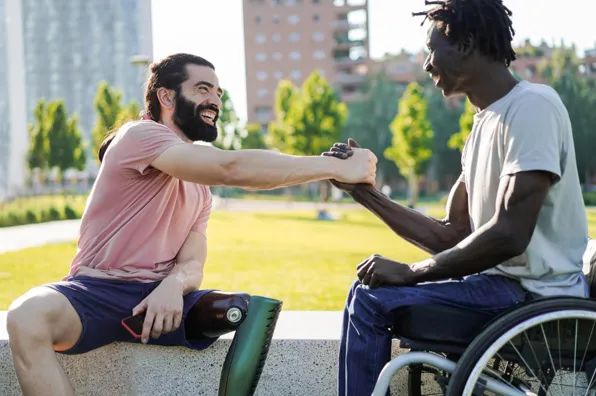Have you ever come across the abbreviation “GTS” in a text message or on social media and found yourself wondering what it really means? You’re not alone.
In the fast-paced world of online communication, acronyms like “GTS” can feel confusing or even frustrating if you’re not familiar with them. But don’t worry—this article will clear everything up for you in the simplest and most comprehensive way.
We’ll explore the true meaning of GTS, how and when to use it, and most importantly, what you can say instead, depending on the tone and setting—whether you’re talking to a friend, colleague, or someone you admire. By the end of this guide, you’ll be able to use or substitute the term “GTS” smoothly and confidently.
What Does GTS Mean in Text?
GTS typically stands for “Go To Sleep.” It’s a casual, often playful way of telling someone to get some rest, especially after a long conversation or late-night chat.
It’s most commonly used in friendly or romantic exchanges, and sometimes even jokingly in group messages or forums.
However, “GTS” can also stand for other things depending on the context, such as:
- Google That Stuff (used when someone asks a question that they could have searched for)
- Good Times (used in nostalgic or happy reflections)
But for this article, we’re focusing on the most commonly used meaning: “Go To Sleep.”
When and Why People Say “GTS”
People use GTS for several reasons, and the meaning depends on tone, timing, and relationship between the people texting.
Here are some scenarios:
- You’ve been chatting for hours, and it’s getting late. One of you says “GTS 😴” as a cute way to end the convo.
- Your best friend is ranting at 2 AM, and you jokingly reply, “girl, gts fr.”
- A parent might say “go to sleep” instead, using full words to sound more caring or serious.
The tone can shift depending on the relationship:
- With friends: playful or teasing
- With partners: affectionate and gentle
- With acquaintances or coworkers: best to use a more professional alternative
Why You Might Want Alternatives to “GTS”
While “GTS” works fine in casual settings, it’s not always the best fit. It can sound abrupt or confusing to someone unfamiliar with texting slang. Plus, if you’re trying to sound more professional or kind, there are better and more respectful ways to tell someone to rest or end a conversation politely.
This is especially true if:
- You’re talking to someone from a different generation.
- You’re in a work-related chat or formal discussion.
- You want to sound more thoughtful or empathetic.
11 Polite, Professional, and Casual Alternatives to “GTS”
Let’s look at 11 different ways to say “Go to sleep,” tailored to different moods and tones. These phrases offer variety, clarity, and emotional warmth—something “GTS” doesn’t always deliver.
1. “Get some rest!”
This is a warm and gentle phrase. It feels kind and genuine.
Example:
“You’ve had a long day—get some rest. You deserve it.”
Tone: Caring and supportive
Best For: Friends, family, casual work chats
2. “Sleep well!”
Short, sweet, and polite. A great go-to when signing off.
Example:
“I’ll catch you tomorrow. Sleep well!”
Tone: Neutral and polite
Best For: Any setting, even professional
3. “Good night and sweet dreams!”
This version adds a touch of warmth and affection.
Example:
“It’s late. Good night and sweet dreams 💫”
Tone: Romantic, soft, comforting
Best For: Partners, close friends
4. “You should get some shut-eye.”
A little more casual and humorous.
Example:
“You’re still awake? You should get some shut-eye, lol.”
Tone: Light and playful
Best For: Friends, informal chats
5. “Catch some Z’s!”
Very casual and a bit retro, but fun to use.
Example:
“I’m gonna go catch some Z’s. Talk to you in the morning!”
Tone: Fun and friendly
Best For: Informal texts, casual friends
6. “Head to bed—you need your energy!”
This version is thoughtful and caring. It adds a reason for sleeping.
Example:
“Long day ahead tomorrow. Head to bed—you need your energy.”
Tone: Encouraging and parental
Best For: Close friends, loved ones, coworkers in supportive contexts
7. “Rest up!”
Another short and casual way to suggest sleep or rest.
Example:
“Okay, I’m signing off. Rest up, friend.”
Tone: Friendly and low-key
Best For: Any setting, especially casual or supportive ones
8. “Don’t stay up too late.”
This one works well as a subtle suggestion.
Example:
“Alright, I’ll let you go. Don’t stay up too late.”
Tone: Mild and caring
Best For: Anyone you care about or want to gently remind
9. “Time to wind down for the night.”
Professional and calm, ideal for formal chats.
Example:
“Looks like it’s time to wind down for the night. Let’s pick this up tomorrow.”
Tone: Professional, respectful
Best For: Colleagues, work emails, study partners
10. “Logging off for the night—take care!”
This phrase is perfect if you’re ending a virtual meeting or chat.
Example:
“It’s been great catching up. Logging off for the night—take care!”
Tone: Courteous and polished
Best For: Business chats, online forums
11. “Hope you get a peaceful night’s sleep.”
This is the most soothing and gentle option.
Example:
“Sounds like a stressful day. Hope you get a peaceful night’s sleep.”
Tone: Empathetic and soft
Best For: When someone is tired, stressed, or emotional
Choosing the Right Alternative: What to Keep in Mind
Here are some quick tips to help you choose the right alternative to “GTS” depending on who you’re speaking to and what kind of tone you’re aiming for:
1. Know Your Audience
- If it’s a friend or sibling, go casual and fun.
- If it’s a coworker or teacher, stay respectful and clear.
- If it’s a partner, you can be as affectionate or playful as you like.
2. Consider the Context
- Late-night chats? Go gentle or sweet.
- Formal meetings? Use professional sign-offs.
- Group texts? Keep it light, but not too personal.
3. Match the Tone
Your word choice should reflect the emotional tone of the conversation. If the chat is serious or emotional, opt for empathetic phrasing like “Hope you get a peaceful night’s sleep.” If it’s light or funny, something like “Catch some Z’s!” works better.
Is It Okay to Still Use “GTS”?
Absolutely. Just like any acronym, GTS is fine in the right setting, especially with people who understand texting slang. It’s short, expressive, and easy to type. But if you’re aiming to be clear, professional, or more emotionally thoughtful, switching it out for a full phrase is usually better.
So the next time you’re about to type “GTS,” just pause and think:
- Will the person get it?
- Will it come across as rude or too short?
- Is this a situation where I should sound more considerate or formal?
If so, now you have 11 better ways to express the same idea with more care and style.
Final Thoughts
“GTS” may be a tiny phrase, but it holds a lot of potential for miscommunication—or connection.
By understanding what it means and when to use it (or not use it), you’re not just being polite—you’re building better relationships through communication.
The more intentional you are with your words, the more likely you are to be understood, respected, and remembered.
Whether you’re chatting with a best friend or wrapping up a Zoom call with a coworker, a little language awareness goes a long way.




